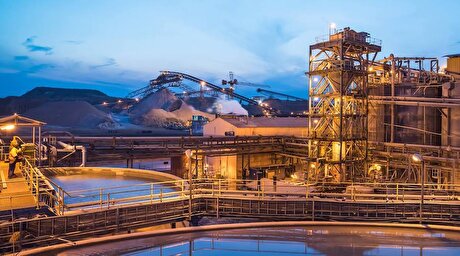
Viewpoint: Low stocks underpin US asphalt prices

Many predicted the International Maritime Organization's (IMO) new sulphur mandate on shipping emissions, capped at 0.5pc from 3.5pc on 1 January, would redirect an unmanageable surplus of low-cost, high-sulphur resid into the asphalt pool. Price cuts have been weaker than expected, even as many shipowners have already transitioned away from the high-sulphur fuel.
Instead, the industry is poised to enter 2020 with limited residual output, lower imports and below-average stock levels, which should help underpin prices early in the first quarter. Refineries in the US and Europe have been switching to lighter, sweeter crudes in preparation for the new sulphur rules, reducing asphalt yield. Alongside the shift toward lighter grades, persistently high coker utilization and the expansion of coking capacity have also encouraged residue destruction.
Buyers seeking to mitigate downside risk from IMO ran down inventories, which bottomed in late November at 17.5mn bl, a five-year low, according to US Energy Information Administration (EIA) data. This compares to US inventory held in April, when weekly storage volumes peaked at a record high for any year at 34mn bl.
Those banking on sharp discounts after January may be disappointed if prices continue to track the supply tightness seen in late 2019. Gains have so far been contained to waterborne markets like the US Gulf and Atlantic coasts, but could soon have a knock-on effect on other regions. US Atlantic coast barge prices were up by $45/t in the last few weeks of 2019, and have been on an upward trajectory since November.
Traditionally, buyers have relied on a slump in road paving demand in the winter to snap up product at steep discounts, commonly known as "winter fill." But delayed restocking this year, coupled with strong coker yields, means buyers may soon encounter higher costs as winter fill demand climbs ahead of the 2020 construction season.
Prices hinge on long-haul trade, crude
Global trade flows will continue to have an outsized impact on US prices next year. Gains seen in early 2020 could be fleeting if lower US asphalt production is offset by enough imports from abroad.
Increased asphalt exports from the Mediterranean to markets in Asia-Pacific and the Middle East have so far curtailed product inflows to the US. With the US east coast structurally short of product, an ongoing reduction in imports from the Mediterranean or Canada may strain US refiners — particularly swing producers in the midcontinent — who have cut throughputs or must focus on refilling internal storage in the first quarter.
Supply will also be determined by how long coking margins are supported by the new marine regulations, and how much high-sulphur fuel oil (HSFO) bottoms freed up from the bunker pool make their way to US refiners with upgrading capacity.
This year, unexpected supply ramifications from provincial oil curtailments in Alberta, export pipeline congestion in Canada, Opec and non-Opec production cuts, and US sanctions against Iran and Venezuela have all squeezed global heavy, asphaltic crude supply. The latest round of deeper Opec and non-Opec output cuts, which come into force in January, is also expected to tighten supply.
By Maria Ahmad


Northern Dynasty in talks to settle EPA litigation, shares hit 5-year high

US couple could face trial over gold bars missing from 18th Century sunken ship

China Rare Earth Group says executive moves at listed unit won’t affect operations

Lupaka Gold skyrockets on arbitration win against Peru

Gold price retreats to one-week low on US tariff delay

Torngat Metals’ rare earths project revival aims to create ‘a new industry in Canada’ CEO says

Critical minerals to top Modi’s agenda in five-nation tour

Japan to test mine seabed mud for rare earths

Infographic: Who controls rare earth processing?

Copper output at Ivanhoe’s Congo mine jumps in second quarter

Gold ETFs drew largest inflow in five years during first half of 2025, WGC says

Glencore to sell Philippine copper smelter to Villar family

Mali to sell $107M in gold from Barrick to fund mine restart

EU prepares to stockpile critical minerals in case of war: FT

Dundee receives environmental OK for underground gold project in Ecuador

China’s mining investment sets new record

Royal Gold to acquire Sandstorm, Horizon in $3.7B deal

Copper price soars to record as Trump announces 50% tariff

CHART: Nickel overtakes lithium as most valuable EV battery metal as prices slump

Gold ETFs drew largest inflow in five years during first half of 2025, WGC says

Mali to sell $107M in gold from Barrick to fund mine restart

EU prepares to stockpile critical minerals in case of war: FT

Dundee receives environmental OK for underground gold project in Ecuador

China’s mining investment sets new record

Royal Gold to acquire Sandstorm, Horizon in $3.7B deal

Copper price soars to record as Trump announces 50% tariff

CHART: Nickel overtakes lithium as most valuable EV battery metal as prices slump

Summit Royalty to go public in deal with Eagle Royalties












